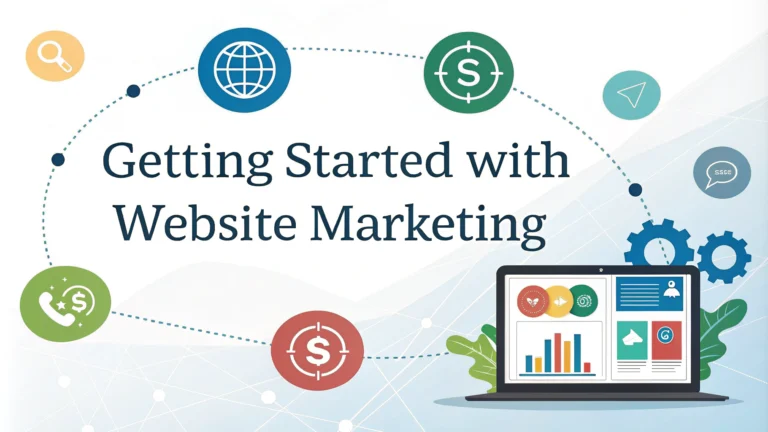Every year, millions of websites launch with big dreams, but fewer than 10% successfully attract consistent traffic. Website marketing isn’t just about creating a site—it’s about strategically positioning your digital presence to cut through online noise and connect with your target audience.
1. Understanding Website Marketing Fundamentals
Website marketing transforms your online platform from a passive digital brochure into an active customer acquisition engine. It combines strategic techniques designed to increase visibility, attract qualified visitors, and convert browsers into buyers.
Successful website marketing requires a holistic approach that integrates multiple digital channels and tactics. These include search engine optimization, content marketing, social media promotion, email campaigns, and targeted advertising.
Key components include:
- Clear target audience identification
- Compelling value proposition
- User-friendly website design
- Consistent brand messaging
- Performance tracking mechanisms
2. Developing a Strategic Marketing Roadmap
A strategic marketing roadmap serves as your website’s navigation system, guiding every promotional effort towards measurable goals. Without this blueprint, marketing attempts become scattered and ineffective.
Your roadmap should encompass:
- Specific, measurable objectives
- Audience persona development
- Channel selection strategy
- Budget allocation
- Performance benchmarks
Research shows that businesses with documented marketing strategies are 313% more likely to report success compared to those without formal plans.
3. Search Engine Optimization (SEO) Essentials
SEO remains the cornerstone of sustainable website marketing, enabling organic discovery by potential customers searching for your products or services.
Critical SEO elements include:
- Keyword research and optimization
- High-quality, relevant content creation
- Technical website performance
- Quality backlink acquisition
- Mobile responsiveness
Google’s algorithm considers over 200 ranking factors, making continuous learning and adaptation crucial for maintaining competitive search visibility.
4. Content Marketing Strategies
Content marketing transforms your website from a static platform into an engaging resource that attracts, educates, and converts potential customers.
Effective content strategies involve:
- Understanding audience pain points
- Creating diverse content formats
- Maintaining consistent publishing schedule
- Promoting content across multiple channels
- Measuring content performance
Websites publishing 16+ blog posts monthly generate 3.5x more traffic than those publishing infrequently.

